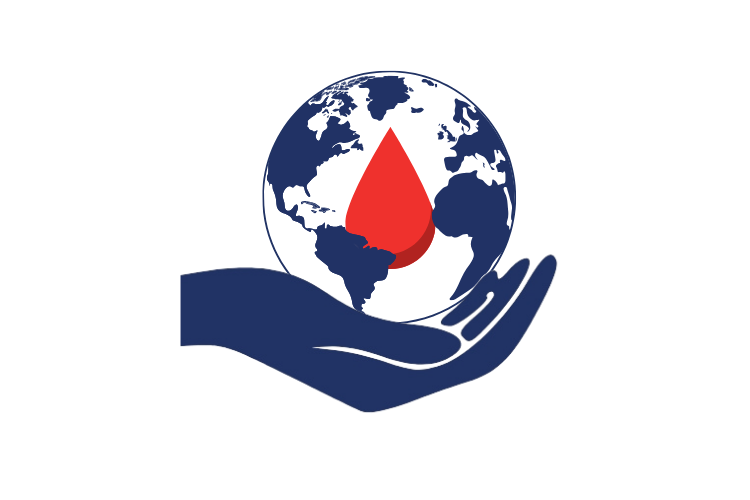Health Care Packages
Basic Package
Basic Health Check: Essential tests for blood pressure, cholesterol, and glucose monitoring.
₹750/-
General Health Check Up
Comprehensive exam and tests to assess health and detect issues
₹1499/-
Comprehensive Cardiac Health Check Up
Heart evaluation with ECG, echo, stress test, and blood work.
₹2499/-
Executive Medical Health Checkup
Executive Health Checkup with advanced screenings for wellness and early detection.
₹ 4999/-
Senior Citizen Health Check Up(Men & Women)
Senior Citizen Health Check-Up with essential tests for age-related concerns.
₹ 5999/-
Welcome to Our Free Blood Services
we are committed to supporting the health and wellbeing of our community. Our Free Blood Services are designed to ensure that everyone has access to necessary blood tests and donations without the burden of cost. Below, you will find information about the services we offer, how you can benefit from them, or how you can contribute.
Understanding Blood and Blood Groups
The blood type of a person is determined by the presence or absence of certain molecules called antigens and antibodies. The two main antigen types that are most significant in blood typing are antigen A and antigen B. The presence or absence of these antigens divides blood into four major types:
- Type A: Has only the A antigen on red cells and B antibody in the plasma.
- Type B: Has only the B antigen on red cells and A antibody in the plasma.
- Type AB: Has both A and B antigens on red cells but neither A nor B antibodies in the plasma.
- Type O: Has neither A nor B antigens on red cells but both A and B antibodies in the plasma.
In addition to the A and B antigens, there is another antigen called the Rh factor. This can be either present (+) or absent (−), leading to each blood type being classified into one of two groups: positive (+) or negative (−). This results in the eight most common blood types: A+, A−, B+, B−, O+, O−, AB+, and AB−.
- Rh Positive (+): Indicates the presence of the Rh factor on the red blood cells.
- Rh Negative (−): Indicates the absence of the Rh factor.
Physiotherapy at Home - 7 Sessions
Physiotherapy at Home for recovery and mobility.
₹ 5600/-
Physiotherapy at Home - 15 Sessions
Physiotherapy at Home for recovery and mobility.
₹ 10,500/-
Physiotherapy at Home - 30 Sessions
Physiotherapy at Home for recovery and mobility.
₹ 18,000/-
WHAT WE OFFER







1. Free Blood Testing :
We provide a range of no-cost blood testing services to help diagnose various health conditions early. These tests include but are not limited to:
- Complete Blood Count (CBC)
- Blood Sugar Levels
- Cholesterol Testing
- Liver and Kidney Function Tests
- Iron Levels and Anemia Screening
2. Free Blood Donation Services
Blood donation is a life-saving act that benefits patients in need of blood transfusions. To facilitate this, we offer:
- Safe and sterile environment for blood donation
- Free health screening prior to donation
- Information and support about the benefits of blood donation
3. Community Outreach and Education
Educating our community about the importance of regular blood tests and the life-saving power of blood donations is crucial. Our outreach programs include:
- Free seminars and workshops on the importance of blood donations
- Educational material available both online and at our facility
- Scheduled school and community center visits to promote blood health awareness
BENEFITS OF DONATING BLOOD
When you donate blood, you’re contributing to a critical need that saves lives. Whole blood donations are particularly valuable because they contain a mix of essential components: red blood cells, platelets, plasma, and white blood cells. Among these, red blood cells are in constant demand, vital for various medical treatments. So, what makes automated red cell donation stand out? Unlike traditional whole blood donation, this process allows you to give two units of red cells in a single session through an automated procedure. Here’s how it works: blood is drawn from one arm, processed by a machine to separate the red cells, and then the remaining components, along with saline, are safely returned to you through the same arm.
Benefits if you Donate Blood
- Reduce risk of heart attacks
- Lower the risk of cancer
- Production of the new blood cells
- Reduced risk of hemochromatosis
- Regularly donating blood helps in weight loss and burn fat up to 650 calories.

- Reveal potential health problems
- Reduce harmful iron stores
- Giving blood can help your liver stay healthy
- New blood cell production
- Saving Human Lives – Saving the world
Am I Eligilable to Donate?
In addition to meeting other whole blood donor qualifications, you must also meet specific criteria for donating Whole blood, especially for hemoglobin, weight and height. The thresholds for each vary by gender.
- Whole blood is for type O, A negative or B negative donors
- Donation Frequency: Every 112 days, up to 3 times/year
- You must be in good health and feeling well
- Male donors+ must be at least 17 years old in most states, at least 5’1″ tall and weigh at least 130 lbs.
- Female donors+ must be at least 19 years old, at least 5’5″ tall and weigh at least 150 lbs.